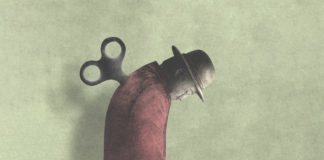“Dear God”
Life is not just a very cool gift. It is something that a person receives on loan from God. That's the conclusion of Oscar, the child hero of "Oscar and the Lady in Pink," a novel written by Franco-Belgian playwright, short story writer, and novelist Éric-Emmanuel Schmitt.
The science of dining
I once invited the cashier at my local 7-Eleven petrol station to join me and my friends on a beach couch made of sand to eat hotdogs after his shift. To our surprise, he not only came but continued to join us for months after.
Prayers of thanksgiving and praise
When we think of gratitude and a lack of gratitude, the biblical scene that comes to mind is the healing of the ten lepers, of whom only one, a Samaritan, returned to thank the Saviour, worshiping and praising God in a loud voice (Luke 17:15-16).
Cohabiting before marriage reduces the risk of divorce: true or false?
More and more people are choosing cohabitation over marriage. Many young people believe that cohabiting helps them to make better decisions about marriage by giving the couple a chance to "practise" before making a lifelong commitment. There is also a belief that cohabiting before marriage reduces the likelihood of marital problems or divorce.
Do children ruin marital happiness? How to manage the changes generated by the birth of children
Describing the breakup of her marriage after the birth of her children, journalist Nora Ephron writes that a child is a grenade for the couple’s relationship. After the explosion, when the dust settles, “your marriage is different from what it was. Not better, necessarily; not worse, necessarily; but different.” [1].
Single (and happy)—an increasingly common status in modern society
The number of single individuals has skyrocketed in the past few decades in nearly 40% of the world’s countries. While some complain about the economic discrimination they face, many who have chosen this lifestyle believe they hold a winning ticket in other areas of their lives.
Logotherapy and the meaning that brings healing
Happiness must come naturally – and this is true for success: you must let it happen simply by not obsessing over it.
Scars that heal
He had made the mistake of asking the doctors for a mirror. Terrified, he saw a monster reflected in it. Lying on the hospital bed, after the doctor left, he pulled on the tube he thought was keeping him alive. He had no reason to live.
Should our parents have a say in our love choices?
He will never be good enough for daddy’s little girl and she will never take care of mamma’s little boy like she ought to. How many people find themselves in a similar scenario? We all want those who raised us and the person we see ourselves with in the future to get along. However, an inevitable question arises when this is not possible:...
Fast fashion: a parade of lies
Not only are they all brands of the same Spanish manufacturer, Inditex, but they are all part of the same trend that has revolutionised the fashion industry: fast fashion. The rise of this trend is based on two principles that have proven to be magnetic for consumers, especially young ones: clothes tailored to the latest trends (today on the catwalk, tomorrow in the...
The role of hope in healing from “survivor’s guilt”
I don’t think I did anything significant the afternoon I saw the movie “Awakenings”. The feeling that I had reached the heart of the human condition strongly impressed me with the idea that we are born captive in a limited nature, and that gave me a heavy feeling of loss.
Sports betting: from entertainment to addiction
Sports betting may seem to be a harmless way to unwind, but the relationship between winning and losing is, mostly, not in the player’s favour. Moreover, the road from entertainment to addiction can prove to be a short one, while the recovery process is arduous and long.
Forgiveness heals the one who forgives
Everyone thinks forgiveness is a lovely idea until he has something to forgive. – C.S. Lewis
The exclusive prayer: Who should we address when we pray?
The stakes are high when it comes to identifying the one to whom we should pray, and we can discover who by answering an apparently simple question: Can we expect prayers to be heard no matter who we address them to?
Five lessons from the life of Dietrich Bonhoeffer
It takes a brave man to stand up to a dictator and perhaps an even braver one to stand up to his church. Dietrich Bonhoeffer has been held up as a hero of the cause of justice and equality, and a statesman of modern Christian theology. For some readers, these two things might not seem a natural fit. But for Bonhoeffer, the two...


























